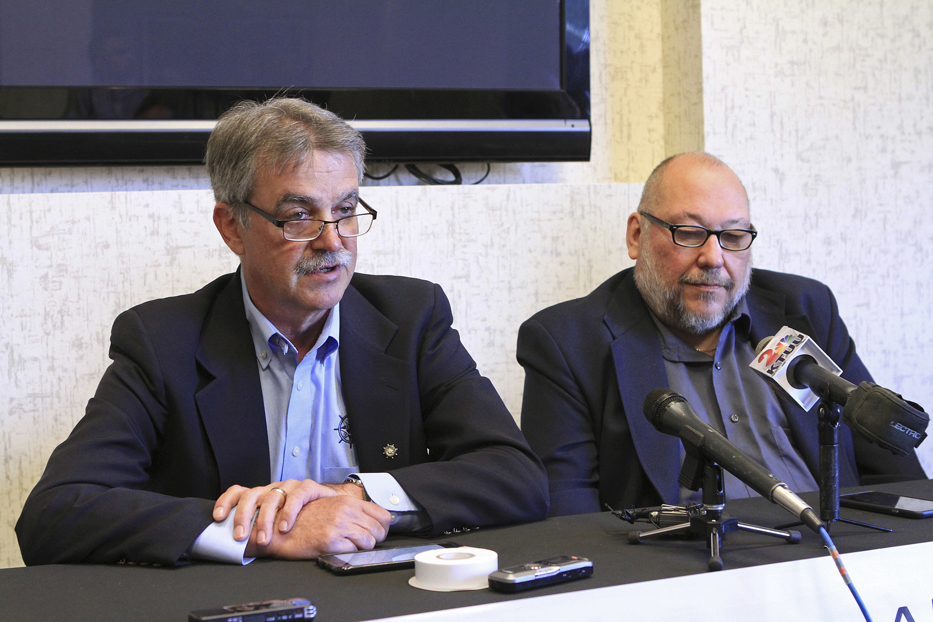ANCHORAGE — Two maritime unions with 250 Alaska jobs at stake have begun a campaign to stop the operator of the trans-Alaska pipeline from switching to a nonunion company for escorting oil tankers safely out of Prince William Sound, where the Exxon Valdez spilled 11 million gallons of crude oil in 1989.
Alyeska Pipeline Service Co. is proposing to drop Florida-based Crowley Maritime Services, which has provided tugs for tanker escorts and spill response services in Prince William Sound for 25 years. Alyeska spokeswoman Michelle Egan said Tuesday the company is in final negotiations for a new contract with Louisiana-based Edison Chouest, for the contract.
Crowley has decades of experience operating in harsh Alaska conditions, said Alan Cote, president of the Inlandboatmen’s Union, at a press conference. Alyeska is trading safety and Alaska jobs for questionable costs savings, he said.
“One spill, one major incident, all that costs savings means nothing,” Cote said.
The IBU, representing engineers and deck hands, and the International Organization of Masters, Mates & Pilots, representing captains and mates, are launching television ads encouraging the public to contact Alyeska. They’re aiming for 5,000 signatures on a petition to retain Crowley. They contended Alaska jobs will be lost to nonresidents.
Capt. Tim Saffle, regional representative for the masters’ union, said some of his union’s members have 30 years of experience in the sound.
“They’ve seen it all,” Saffle said. “They’ve seen the extreme weather, extreme conditions that happen here constantly. We don’t want to lose that.”
Crowley’s contract is scheduled to expire in June 2018.
“It’s our process to bid those kinds of contracts to see if we can get some competition, and also the best value,” Egan said. Both financial and technical components are considered, she said.
“Edison Chouest brings a lot of expertise and one of the things we’re excited about is the new equipment they will be bringing,” she said.
Once Edison Chouest is on the job, Egan said, it will be closely monitored to make sure it meets requirements of the spill plan.
The unions’ claims that Alaska resident workers will be replaced by nonresidents is based on faulty assumptions, she said. Not all Crowley employees are Alaskans, she said.
“It’s a bit of a stretch to say all those jobs will go out of Alaska,” she said.
Edison Chouest will be expected to meet an Alyeska requirement for major contractors of 20 percent Alaska Native hire, she said.
Edison Chouest has had a presence in Alaska before. The company has participated in Alaska politics, with employees and family members donating thousands to the campaigns of U.S. Rep. Don Young, R-Alaska.
The company built and operated the Aiviq, a 360-foot vessel built to tow a Royal Dutch Shell PLC drilling barge, the Kulluk, for Arctic offshore drilling in the Beaufort Sea. In December 2012, as the vessels attempted a crossing of the Gulf of Alaska, the Kulluk broke free. A day later, all four engines on the Aiviq failed. Re-attachment attempts failed and the Kulluk ran aground near Kodiak Island.
Cote spent two years on the Exxon Valdez cleanup and said he never wants to see that sort of damage again. Alyeska should stick with Crowley, he said.
“We all know the oil companies can afford a state-of-the-art oil spill prevention program in Valdez,” he said.


